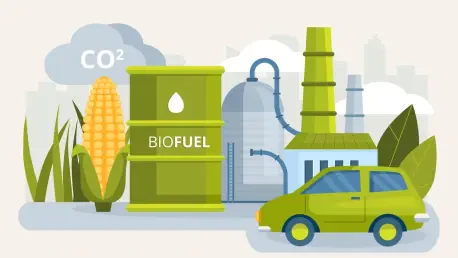
In the current landscape of energy policies, President Donald Trump's biofuel strategy has sparked a significant debate within the American oil industry. A revealing letter from the American Fuel and Petrochemical Manufacturers (AFPM) to Republican lawmakers highlights these growing tensions,

In an era defined by technological advancement and the urgent necessity for sustainable energy solutions, Christopher Hailstone stands out as a leading authority. With extensive expertise in energy management, renewable energy, and the evolution of electricity delivery, Hailstone lends his insights

In the swiftly evolving landscape of technology, data centers have emerged as significant protagonists, dictating a relentless upsurge in energy demand. With data centers contributing to a potential addition of up to 7 gigawatts (GW) of electrical load on DTE Energy's system, the urgency to address

In the era of artificial intelligence, where computational needs are experiencing unprecedented growth, data centers have emerged as indispensable infrastructures. With the burgeoning power demands of AI applications, the utility sector is undergoing a significant reevaluation to adapt strategies

A landmark event unfolded recently as the Trump administration rolled out its artificial intelligence (AI) action plan, aiming to revolutionize the energy and data infrastructure across the United States. This unveiling marks a pivotal moment, as it addresses the need for deregulation while

Meeting the demands of evolving global energy needs can be challenging, and those challenges are magnified within the complex network of OPEC nations. The importance of compliance with oil production agreements is a pressing issue facing the Organization of the Petroleum Exporting Countries (OPEC).